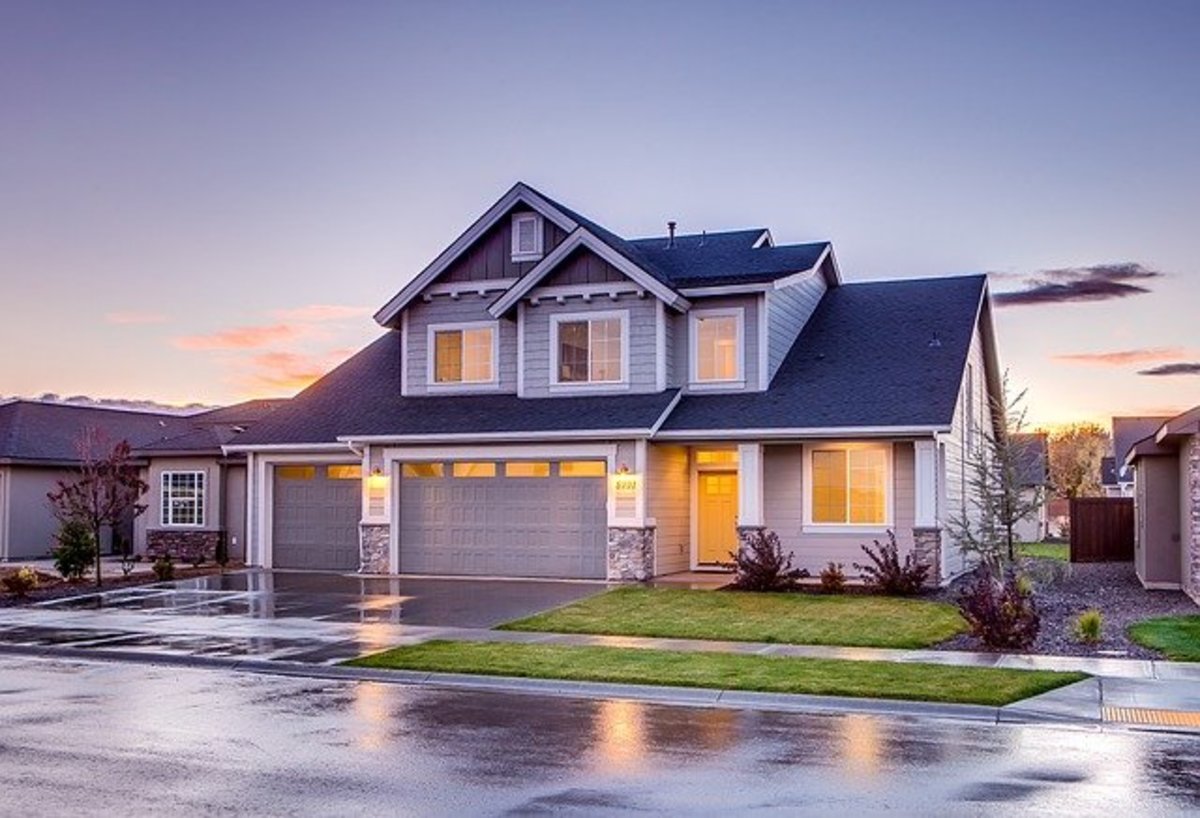Should You Rent or Buy a House?

Living with mommy and daddy can definitely have its advantages for single people. There are usually no housing payments to worry about unless your parents charge rent. Although there is the current phenomenon of people staying home for longer periods of time, just about everyone will eventually move out on his or her own. It is at this point that one of the most important decisions in life will be made--should you rent a place or buy your own home? The best decisions will be related to a variety of contingencies.
Supply and Demand Affect the Costs
The cost of housing in both the rental market and the housing market will depend largely upon the supply and demand of housing in a given area. Some areas with a low population that is not growing rapidly are likely to see relatively cheap housing. If landlords are paying less for their mortgage, it is likely that renters will be paying less. It is also likely that buyers will be paying less in such a market.
California is the most populous state in the United States. Certain metropolitan areas like San Diego and San Francisco are desirable for many people. During the housing market demand well outstripped the available supply and speculators led to a huge bubble that is just now starting to equalize.
Generally speaking, low supply and high demand will lead to high prices. High supply and low demand will lead to lower prices. In some areas, there will be a large supply of rental property. In others there will be a large supply of homes for sale.
The I-29 corridor in North Dakota is one example of how this will work on the rental market. Grand Forks and Fargo sit about 75 miles apart. Both are college towns. Fargo is about twice the size of Grand Forks, but in many respects they are quite similar. There is a tight rental property in Grand Forks, so a 3-bedroom, 2-bath apartment can easily run between $800 and $1,000. The same apartment in Fargo is much cheaper because of the greater supply of rental units.
What Is Your Station in Life?
One of the main things that people need to think about when it comes to securing housing is their station in life. How long do you plan to live in a given location? What is your marital and parental status? These are two important questions that need to be answered before starting your search.
Many people have short-term assignments that will have them living in a town or city for six months or a year. In these instances, it is probably a better idea to rent until they become more settled.
Single people are more likely to move around for work or pleasure. The same is often true for younger couples. If they plan on being in an area for less than a year, renting is a definite. If they are planning to be in an area for three years, renting is an iffy proposition.
Those who are settled and plan to stay in an area in the long term will probably be better off buying a home, especially with today's cheap interest rates that are hovering around historical lows of 3.5%.
What Is Your Credit Like?
Creditworthiness is one of the major issues that needs to be considered when you are trying to buy a house. Those with bad credit will not be able to buy a house with a mortgage regardless of whether they want to or not. A poor credit score will keep banks from lending money.
Those who have good credit should have little trouble getting a loan. Of course, the amount of income a person makes on an annual basis will affect the size of the loan a person will get. Most experts recommend getting a mortgage that is no more than 2.5 times your annual income. The larger the income and the higher the credit score, the better the loan terms and the bigger the loan amount it is possible to get.

Positives and Negatives of Renting
While the best idea is usually going to be buying a house, as shown below, this does not mean that there are no benefits to renting.
Some of the benefits of renting are:
No need to find a buyer when it's time to move. Just let the landlord know within the specified time frame and leave with no obligations.
No need of paying for upgrades. If the landlord has provided appliances and they go out, he or she is responsible to get new ones. If the roof starts to leak, the landlord has to fix it.
Most multi-unit buildings will pay someone to do yard work and other maintenance. They also pay for snow removal, and this can be a great benefit in some northerly locales.
Negatives of Renting:
You get no equity in the home. The money that you pay to the landlord goes to enriching the landlord. You leave, you get nothing out of it.
In multi-unit buildings, there is usually little in the way of privacy. Nothing is between you and your fellow renters beside a single wall.
Renting is frequently more expensive than paying on a mortgage payment. This is one of the worst parts of renting in some markets.
More Hubs that Look at Homeownership
- Should I Buy a House Now?
Some people may feel that it's a bad time to buy a house because of the economic uncertainty. Actually, it's probably more likely that right now could be the best opportunity to buy a house that will be available for some time. - Pay Your Mortgage off Early?
Paying off debt early is always a good idea. However, what debt is best to pay off first. This article will give some pros and cons of paying off a mortgage early.
Can You Save Money by Buying?
One important question that needs to be asked is whether the cost of a mortgage will actually save money over renting. In the example given above on Grand Forks, if a 3-bedroom, 2-bath apartment is costing $1,000 a month to rent and a mortgage payment for a similar housing arrangement costs $600 per month, it is possible to save $400 per month if the utilities are the same.
In addition to the $400 in savings, the house will eventually be paid off if you keep making the payments. If you save up the $400 for repairs, you will be able to handle the upkeep without taking out a home equity loan. The cost of renting goes up just about every year with inflation. The cost of the mortgage will stay the same for 15 to 30 years without any home equity loans or second mortgages. Then it will be gone.
There will still be value in the house, even though there is no mortgage. Even if you buy a house in a hot market that then drops, the value of the house will never drop to $0. You, or your progeny, will be able to sell the house and make some money back. For this reason, people who plan to live in an area for a relatively long period of time will be better off buying rather than renting.









